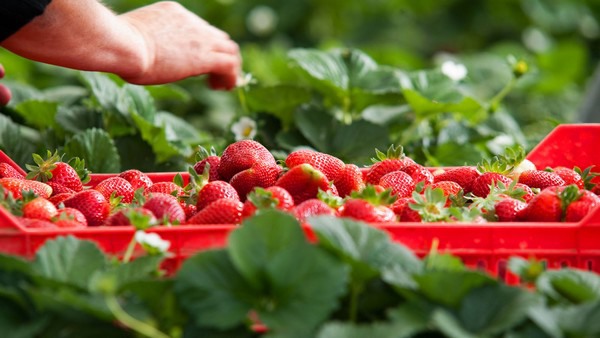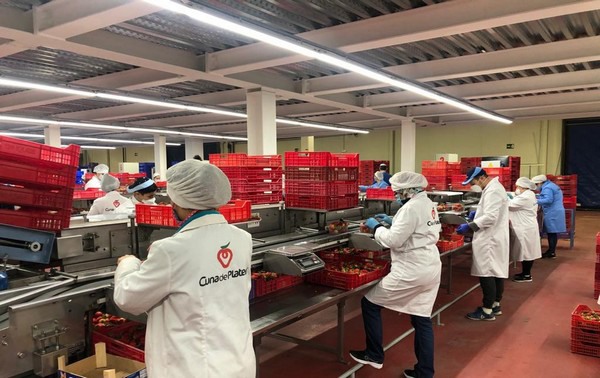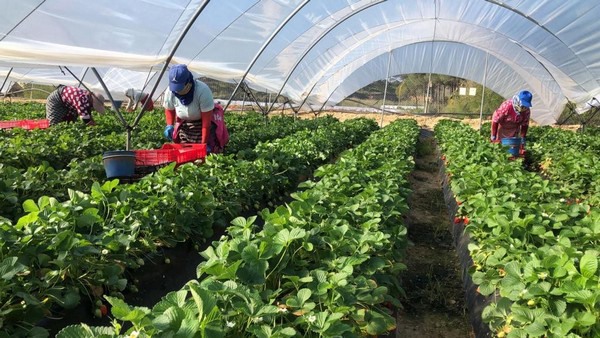Despite this being a year with a lower strawberry production, mainly due to the meteorological conditions (rainy and colder than usual), the supply has been greater than the demand, with the latter seriously affected by the coronavirus crisis. Prices have been very close to unprofitable and it is feared that the acreage for the next season will be reduced.

“This year is being a very difficult one for this sector. Since the pandemic broke out, it hasn't been possible to sell all the fruit, which is paid at low prices due to the limited demand. Still, the situation could have been worse if the weather had been good in Huelva and the production had been greater. Despite everything, we continue to work, enforcing all necessary hygiene measures and preventing the spread of the virus. We will try to salvage the campaign so that producers can continue investing and planting again next year,” says Juan Báñez, manager of the Cuna de Platero cooperative, which is based in Moguer, Huelva.

As for raspberries and blueberries, prices have also fallen. “In December, the oversupply from Morocco caused prices to plummet. Later, the supply and demand in Europe recovered their balance, ensuring fluidity in sales, but with lower price averages. For blueberries, the production is more limited this year due to mild weather conditions. For now, sales have been smooth, despite the fact that prices are also lower. Meanwhile, competition with Moroccan blueberries continues to grow and it is difficult to even know the actual quantities entering the markets."
"Despite the difficult times we are going through, we will continue working to offer the highest quality at reasonable prices, protecting next year's production," says Juan Báñez. “We hope that the operating funds also bring some flexibility that will help producers in this regard, as we anticipate that there will be little investment this year, both in infrastructure and in production. No one is going to take more risks than necessary.”
The changes in buying trends among consumers due to the confinement and the loss of the Horeca channel have been the main factors explaining the drop in the demand for strawberries and other red fruits. “Consumers are opting for fruits with a long shelf life to avoid going to the supermarket more than once a week. Furthermore, it is possible that blueberry and raspberry sales may have been affected by the decrease in the purchasing power of consumers due to this crisis."

Regarding the complications due to the lack of laborers in Huelva, solutions are being sought, such as the hiring of workers from other sectors who are currently unemployed. "This solution was proposed by the Administration, but out of those who join, many leave the post within a few days, because they are not specialized, or have no experience in agricultural tasks. At these times, it is also very important to facilitate and improve the mobility of existing workers, so that they can go to work at the different farms," says Juan Báñez.
For more information:
Sergio Sainz (CCO)
Cuna de Platero
Camino de Montemayor, s/n. Moguer, Huelva. Spain
T: +34 959372125
M: +34 606828659
sergiosainz@cunadeplatero.com
www.cunadeplatero.com
